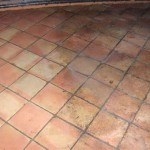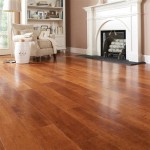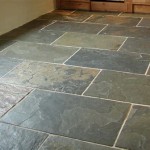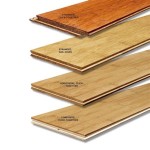What Are the Advantages and Disadvantages of Vinyl Flooring?
Vinyl flooring has become a popular choice for homeowners seeking durable, affordable, and stylish flooring options. Its versatility and ease of maintenance make it suitable for various spaces, from kitchens and bathrooms to living rooms and bedrooms. However, like any flooring material, vinyl has its own unique set of advantages and disadvantages. Understanding these aspects can help you make informed decisions about whether vinyl flooring is the right fit for your home.
Advantages of Vinyl Flooring
Vinyl flooring offers numerous benefits that make it a desirable choice for many homeowners.
Durability and Longevity
Vinyl flooring is known for its durability and longevity. Modern vinyl planks and tiles are designed to withstand heavy foot traffic, making them ideal for high-traffic areas. They are resistant to scratches, dents, and stains, ensuring that they retain their appearance for years to come. Compared to other flooring materials like hardwood, vinyl is less susceptible to damage caused by moisture or spills, making it a practical choice for kitchens, bathrooms, and basements.
Water Resistance and Waterproof Options
Another significant advantage of vinyl flooring is its water resistance. Most vinyl floors can withstand minor spills and splashes without warping or becoming damaged. Some vinyl products are even completely waterproof, making them ideal for areas like bathrooms and laundry rooms where water exposure is more frequent.
Cost-Effectiveness
Vinyl flooring is generally more affordable than other flooring materials like hardwood, tile, or natural stone. Its cost-effectiveness makes it a budget-friendly option for homeowners who want to upgrade their floors without breaking the bank. The affordability of vinyl flooring extends to installation, as it can often be installed directly over existing subfloors, eliminating the need for costly demolition or subfloor preparation.
Wide Variety of Styles and Designs
Vinyl flooring has evolved significantly over the years, offering a wide range of styles and designs to suit any taste. From classic wood-look planks to contemporary abstract patterns, there are vinyl flooring options that can perfectly complement any décor. The realistic wood and tile designs can create the look of natural materials without the high cost or maintenance requirements.
Easy Maintenance and Cleaning
Vinyl flooring is easy to clean and maintain. Unlike other flooring materials that require specialized cleaning products, vinyl floors can be cleaned with a damp mop and mild detergent. The smooth surface prevents dirt and grime from accumulating, making it a great choice for families with pets or children.
Sound Absorption
Vinyl flooring can help reduce noise levels within the home. Some vinyl products are designed to absorb sound, minimizing the transmission of noise between floors or rooms. This feature can be particularly beneficial in multi-story homes or apartments where noise reduction is essential for peace and quiet.
Hypoallergenic and Allergy-Friendly
Vinyl flooring is considered hypoallergenic and allergy-friendly. Its non-porous surface prevents dust mites, allergens, and other irritants from accumulating, creating a healthier indoor environment for people with allergies or sensitivities.
Disadvantages of Vinyl Flooring
While vinyl flooring offers many benefits, it also has some potential drawbacks that are important to consider.
Potential for Fading
Vinyl flooring can fade over time, especially if exposed to direct sunlight. The sun's ultraviolet rays can cause the colors in the vinyl to bleach, leading to a less vibrant appearance. To prevent fading, it's important to use window treatments or shades to reduce direct sunlight exposure on vinyl floors.
Limited Lifespan
Vinyl flooring typically has a shorter lifespan than other flooring materials like hardwood or tile. While modern vinyl products are more durable than older versions, they may still need to be replaced sooner than other options.
Synthetic Material
Vinyl flooring is a synthetic material, which may be a concern for some homeowners who prefer natural materials. Some vinyl products may also contain volatile organic compounds (VOCs) that can be emitted into the air, potentially impacting indoor air quality. Choosing low-VOC or VOC-free vinyl products can help minimize this potential concern.
Difficult to Repair
Unlike hardwood floors, which can be refinished to remove scratches and dents, vinyl flooring cannot be easily repaired. Damaged vinyl planks or tiles may need to be replaced entirely. This can be costly and time-consuming depending on the extent of the damage and the location of the affected area.

Pros Cons Of Vinyl Flooring Eric Wright Carpets

Luxury Vinyl Flooring Pros And Cons I Never Thought We D Do This To Our Main Floor Diy Life

Vinyl Flooring Suitability Advantages And Disadvantages Happho

Advantages And Disadvantages Of Resilient Backed Vinyl Flooring Wood Beyond Blog

Vinyl Flooring And Floor Tiles The 8 Pros Cons

The Risks And Disadvantages Of Vinyl Flooring City Floor Supply Blog

The Pros And Cons Of Vinyl Flooring In Living Rooms

Exploring Luxury Vinyl Flooring Advantages And Disadvantages In 2024 Factory Liquidators

What Is Vinyl Flooring Advantages And Disadvantages

What Is Vinyl Flooring Advantages And Disadvantages Qf Greentech Sdn Bhd
See Also







